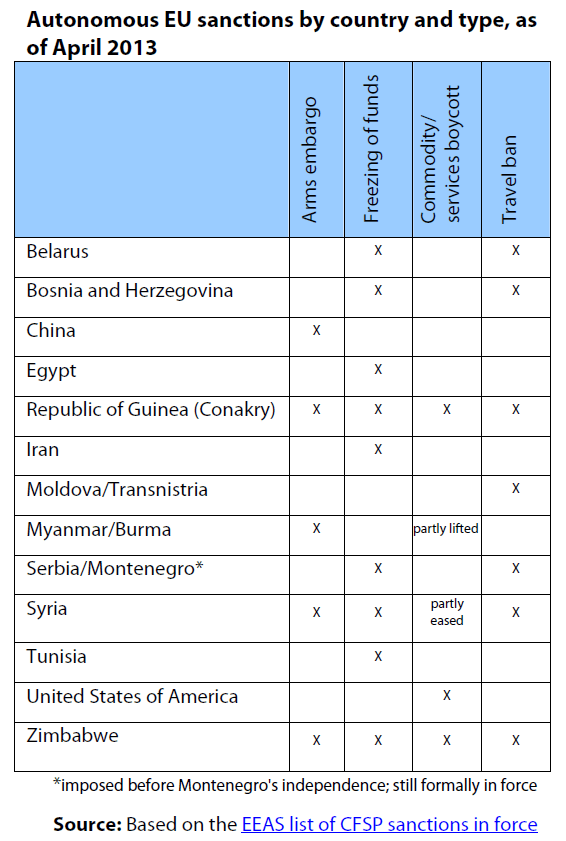The EU’s sanctions policy under the CFSP framework is guided by the EU’s overarching foreign policy principle of effective multilateralism, with the United Nations (UN) at its core. Thus the EU implements mandatory sanctions adopted by the UN Security Council in order to maintain or restore international peace and security.

It can also impose autonomous sanctions, for which it may seek cooperation with states or regional organisations in order to enhance their effectiveness. Autonomous EU sanctions are always targeted and form part of a comprehensive approach, including political dialogue, incentives, conditionality and, as a last resort, coercive measures. CFSP sanctions are sometimes combined with trade or aid-related restrictive measures with a legal basis outside the CFSP framework, such as the suspension of the benefits resulting from bilateral or multilateral contractual relations with third countries or the withdrawal of unilateral trade concessions granted to third countries.
Academic research has shown that CFSP sanctions often fail to bring about the policy or behavioural change aimed for. Criticism has centred on the inconsistent selection of targets and insufficient monitoring of the implementation and evaluation of the impact of sanctions.









